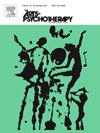Future time perspectives of older adults as reflected through digital photocollage
Abstract
Future time perspective is a concept that refers to individuals’ subjective perceptions of the future. These perceptions influence people’s actions and goals and change throughout the lifespan. Addressing the future can promote self-development while aging but can also raise perspectives that are difficult to discuss. While the arts can provide a safe and creative environment for older adults to explore future time perspectives, studies in this field are scarce. This qualitative study explored the future time perspectives of older adults as expressed through digital photocollage. It is part of a larger project aimed at developing an online arts-based intervention for community dwelling older adults. Twenty-four Italian and Israeli adults aged 78–92 participated in a brief therapeutic online intervention integrating Dignity Therapy and digital photocollage. Visual and verbal data were analyzed in an inductive framework, through polytextual thematic analysis . Four themes were generated. The first three reflected participants’ attitudes and wishes for the future. The fourth theme reflected the evolution of future time perspectives during the creative process. Findings indicated that despite the short-term nature of the creative intervention, and the complex topic at hand, participants expressed multiple future time perspectives. The findings highlight how digital and artistic techniques promote the expression and expansion of older adults’ future time perspectives.

 求助内容:
求助内容: 应助结果提醒方式:
应助结果提醒方式:


